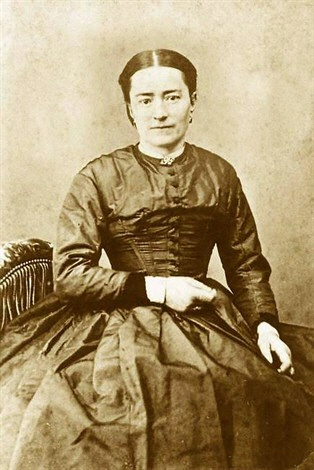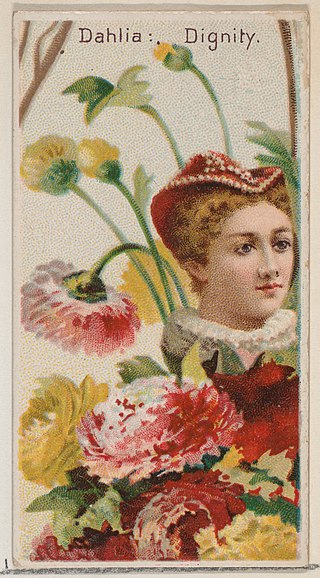Kailey is a modern English feminine first name. It is a spelling variant of Kaylee that became popular in the US following the release of the British rock group Marillion's song "Kayleigh" in 1985.
Alan is a masculine given name in the English and Breton languages. Its surname form is Aland.
Jenkin, of Franconian origin, is translated in English as "Little John" or more literally "John the little".
Pascal is a masculine and feminine given name. It is a Francophone name, cognate of Italian name Pasquale, Spanish name Pascual, Catalan name Pasqual and Portuguese name Pascoal.

Pamela is a feminine given name, often abbreviated to Pam. Pamela is also infrequently used as a surname.

Jacqueline is a given name, the French feminine form of Jacques, also commonly used in the English-speaking world. Older forms and variant spellings were sometimes given to men.
Mirna is a female name common among Croats and Serbs. Derived from the Slavic element mir, Mirna means "peaceful." It is often confused with the name "Myrna"(/myrrhna/), which is not Slavic in origin, but Celtic and means "beloved" and also "tender." In Circassian culture, Mirna means "This Eye": "Mir" stands for "this" and "Na" stands for "Eye".
Polina is a feminine given name with roots in the Greek and Latin languages. It is most widely used in Eastern Slavic cultures such as Belarus, Russia and Ukraine. It is sometimes a short form of the name Apollinariya, a feminine form of the ancient Greek name Apollinaris, a name derived from the Greek god Apollo. In Greek mythology Apollo was the son of Zeus and Leto and the twin of Artemis. He was the god of prophecy, medicine, music, art, law, beauty, and wisdom. Later he also became the god of the sun and light. Apollinaris is the name of several ancient Christian saints. Saint Apollonia was an early Christian martyr venerated in the Catholic Church and the patron saint of dentists and those battling problems with their teeth. The Life of Saint Apolinaria involves a holy woman and ascetic living as a male monk. She is venerated especially in Eastern Orthodox churches.
Abo is an Arabic and Hebrew male name and a variant form of Abbas. It is from Abbas that Abo takes its meaning of stern or somber father. In Arabic, Abbas is a symbolic name referring to the lion, the king of beasts.

Pascal is a French and an Italian surname of Romance origin.

Bain or Bains is an English, French, Punjabi (Jatt), and Scottish surname. It may also be a variant form of a German surname.
Mac Amhalghaidh is an Irish masculine surname. The name translates into English as "son of Amhalghadh". The surname originated as a patronym, however it no longer refers to the actual name of the bearer's father. The form of the surname for unmarried females is Nic Amhalghaidh. The forms for married females are Bean Mhic Amhalghaidh and Mhic Amhalghaidh. The Irish Mac Amhalghaidh has numerous Anglicised forms. The surname has been borne by at least one notable Irish family.
Carolina is a feminine given name in Spanish, English, Dutch, Italian, Portuguese, Catalan and Swedish, derived from the masculine name Carolus which is Latin for Charles, generally meaning 'free man' or 'freeholder'.
Jasmina, sometimes Jasminka, as a feminine variant, and Jasmin, sometimes Jasminko, as a masculine variant, are given names used in Bosnia and Herzegovina, Croatia, Macedonia, Montenegro, Serbia, Bulgaria and Slovenia, and same as a given name Jasmine, which is the common form in German, Romance and English-speaking countries, although almost always as a feminine variation.
Kaja or Kája is a given name and surname.
Eirwyn is a masculine given name.
Eirwen is a feminine given name.
Matea is a feminine given name. It is the feminine form of the male name Mateo, Matej or Matija, which are Croatian forms of Matthew. It is derived from Matthaeus, which means "gift of God."

Zélie is a French short form of the name Azélie. Anglicized spellings and pronunciations of the name also in use include Zelie and Zellie. In some instances the name Zaylee and its spelling variants are intended as phonetic versions of Zélie.

Dahlia is a feminine given name derived from the name for the flower, which was named in honor of the Swedish botanist Anders Dahl. His surname is of Germanic origin and refers to a person who lived in a valley. It is also a spelling variant of the name Dalia, which is also a Hebrew name meaning “hanging branch”.





